The last three days, from Monday 24th to Wednesday 26th of June, INRAE (MaiAge & MICALIS) teams organised a workshop on microbial community-level genome scale modelling (GSM) for consortia design.
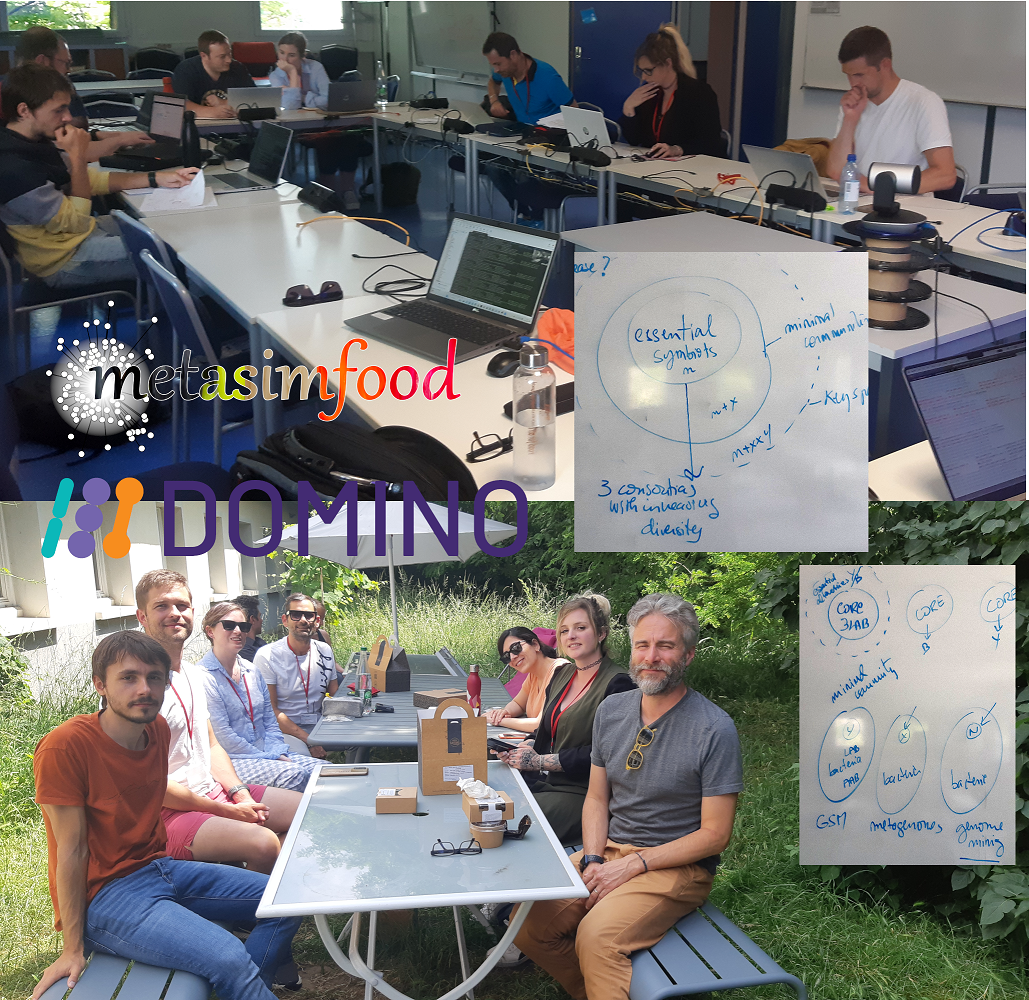
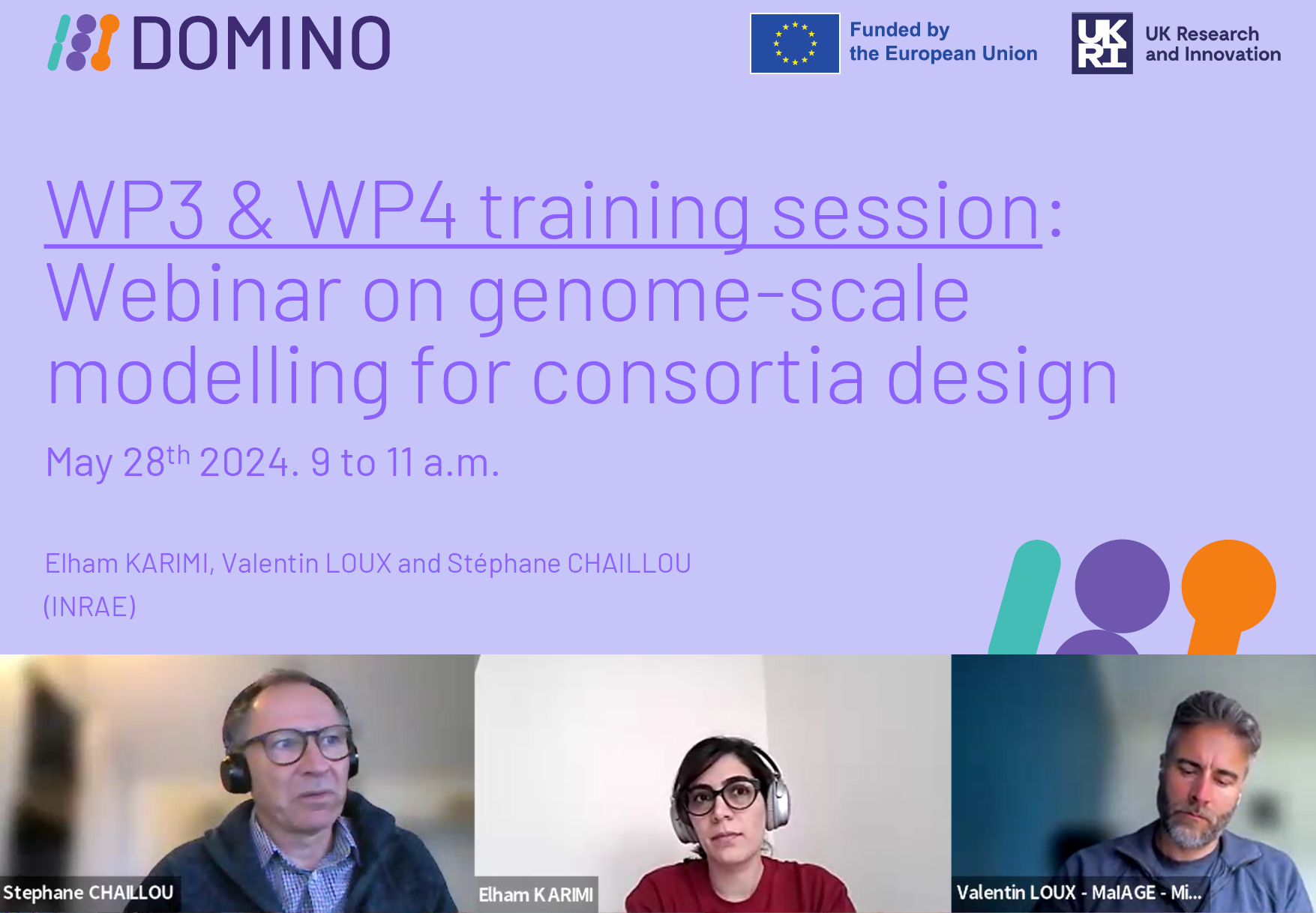
Last Tuesday 28th of May, Elham Karimi, Stephane Chaillou (Micalis, Food Microbial Ecology research group) and Valentin Loux (MaIAge) have organised in the frame of the #DominoEU project a webinar training session on genome-scale modelling (GSM).

Happy to share our last article published online last week 15th of May in Microbiology Spectrum1.
-
Junker R, Valence F, Mistou M, Chaillou S, Chiapello H.0. Integration of metataxonomic data sets into microbial association networks highlights shared bacterial community dynamics in fermented vegetables. Microbiol Spectr0:e00312-24. ↩
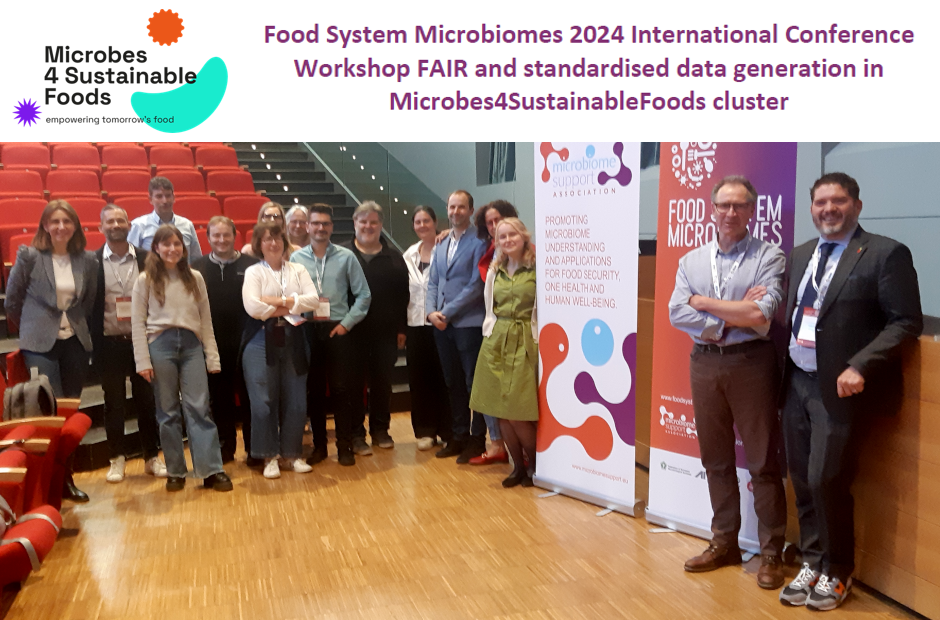
Last Friday 17th of May, in the frame of the 1st Food System Conference in Torino , Stéphane Chaillou organized the second clustering activity of the #Microbes4SustainableFoods cluster of EU projects (#DominoEU, #HealthFerm, #Pimento ca20128, #Wheatbiome, #Tribiome and #Microbes) on the Friday afternoon after the conference closure.
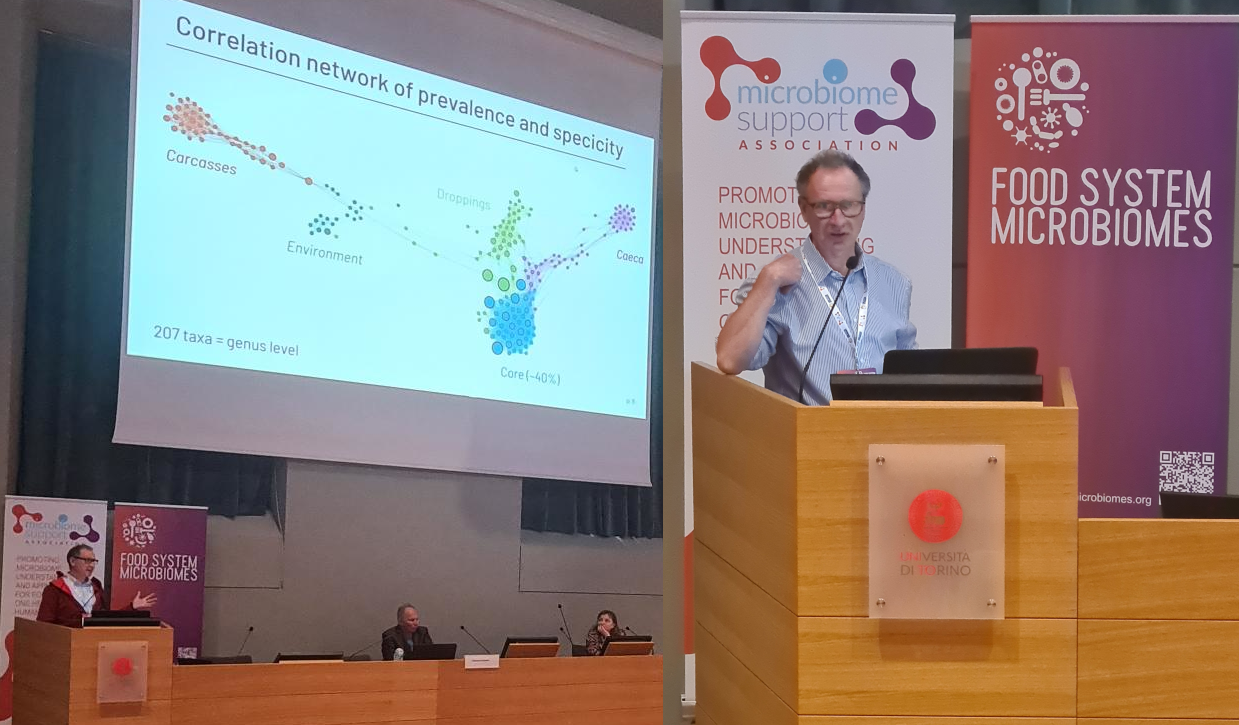
Last week, in the frame of the 1st Food System Conference in Torino, Stéphane was pleased to show for the first time the results of the Holoflux egg-to-meat project.
Latest Posts
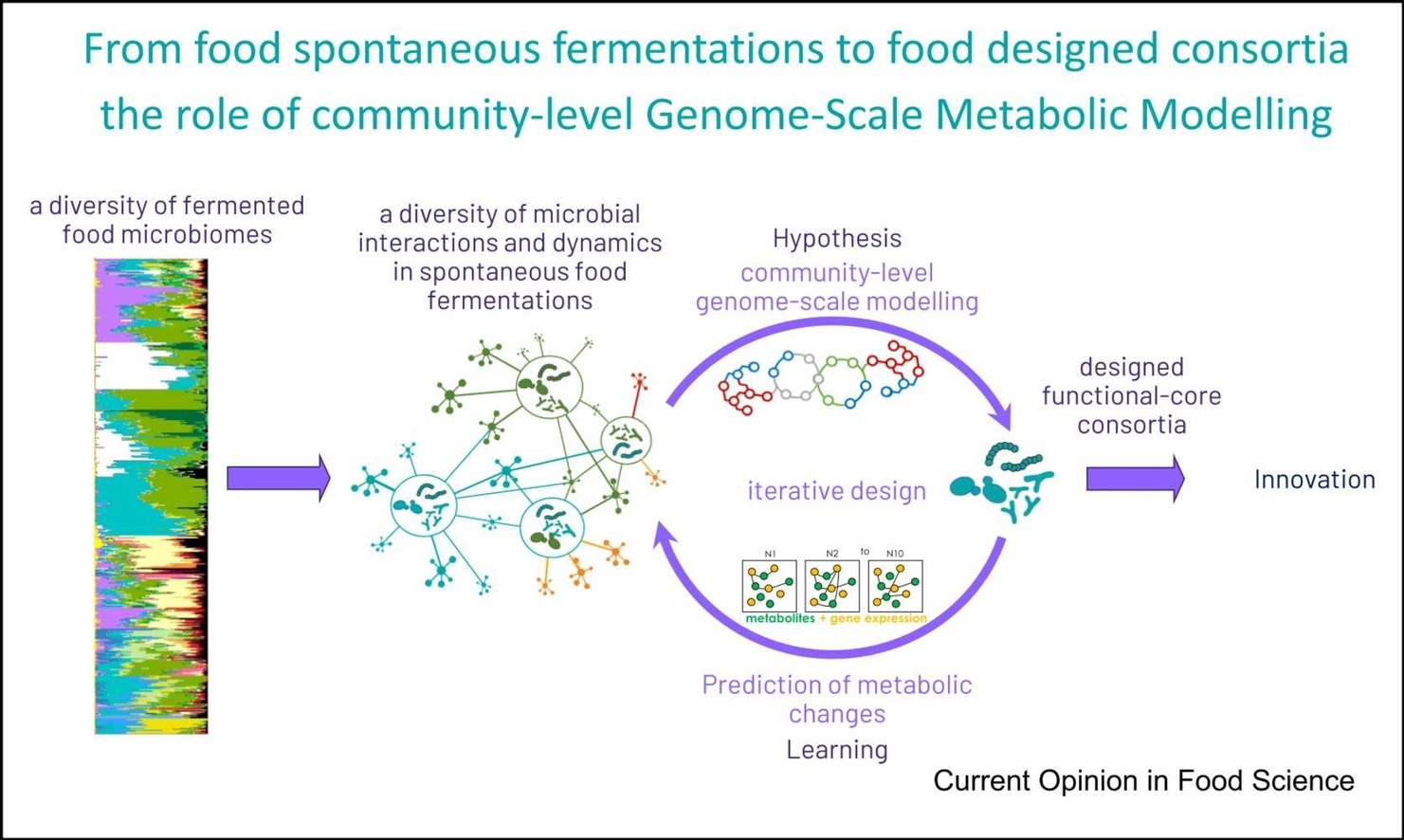
Our new article entitled “Microbiome metabolic modeling as a tool for innovation in fermented foods” has been published in in Current Opinion of Food Science1.
-
Elham Karimi, Julien Tap, Marie-Christine Champomier-Vergès, Stéphane Chaillou. Microbiome metabolic modeling as a tool for innovation in fermented foods. Current Opinion of Food Science. 2025 ↩
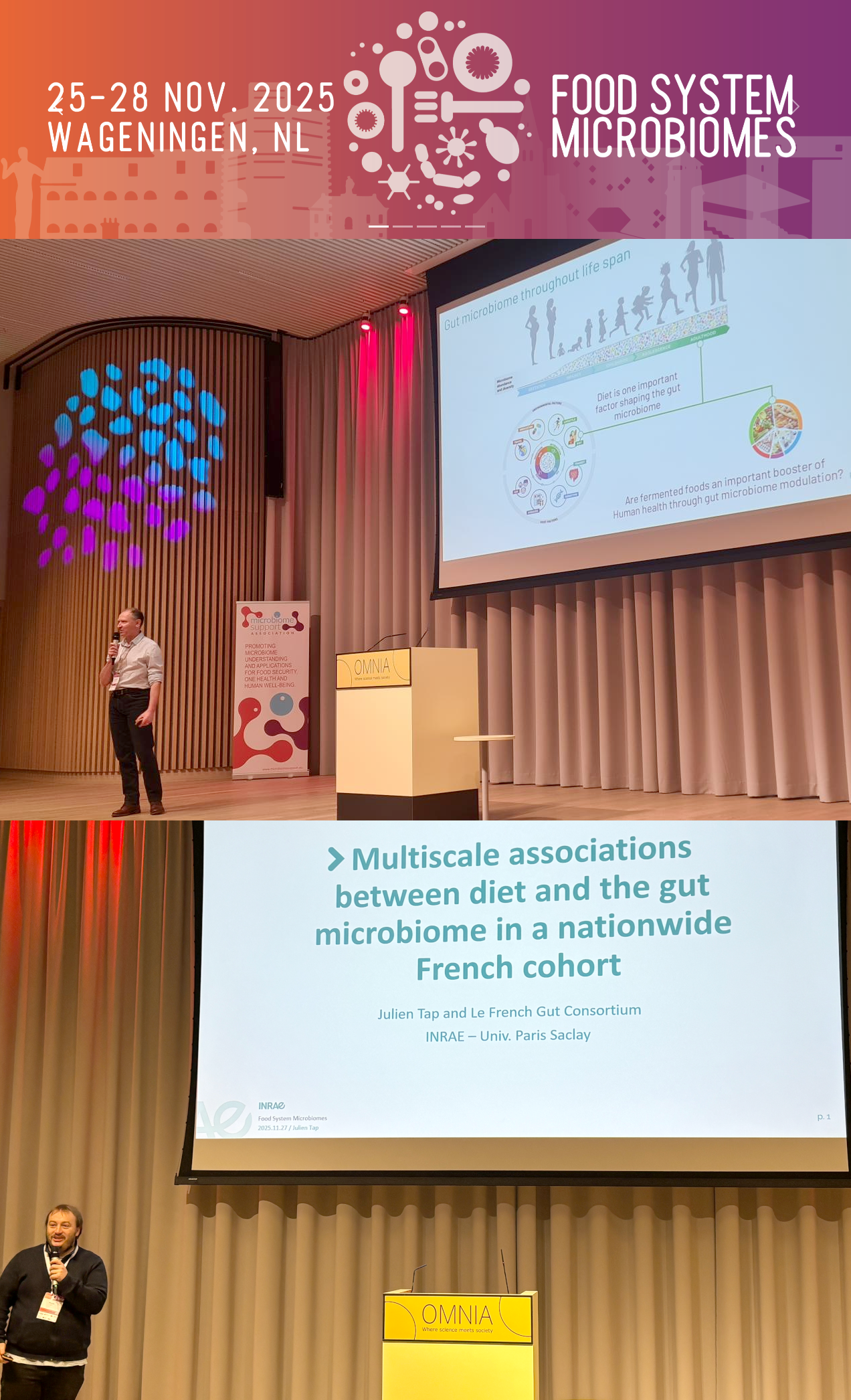
On Thursday 27 November, the FME lab took part in the Food System Microbiomes Conference in Wageningen during the session dedicated to the connections between microbiomes, nutrition and health. The session was co-chaired by Stéphane Chaillou (INRAE, Micalis) and Prof. Christophe Courtin (KU Leuven), and provided an opportunity to showcase advances from two major European projects: DOMINO and HealthFerm.

A new scoping review published in Frontiers in Nutrition1 as part of the COST Action PIMENTO initiative provides a comprehensive assessment of what is currently known about the health effects of fermented foods in specific human populations. This work reflects a substantial collective effort. We conducted an extensive and rigorous screening of the scientific literature, reviewing and selecting studies across many categories of fermented foods and health outcomes.
-
Humblot Christèle, Alvanoudi Panagiota, Alves Emilia, Assunçao Ricardo, Belovic Miona, Bulmus-Tuccar Tugce, Chassard Christophe, Derrien Muriel, Karagöz Mustafa Fevzi, Karakaya Sibel, Laranjo Marta, Mantzouridou Fani Th, Rosado Catarina, Pracer Smilja, Saar Helen, Tap Julien, Treven Primož, Vergères Guy, Pertziger Eugenia, Savary-Auzeloux Isabelle, A scoping review of the health effects of fermented foods in specific human populations and their potential role in precision nutrition: current knowledge and gaps. Frontiers in Nutrition. 2025 doi:10.3389/fnut.2025.1650633 ↩